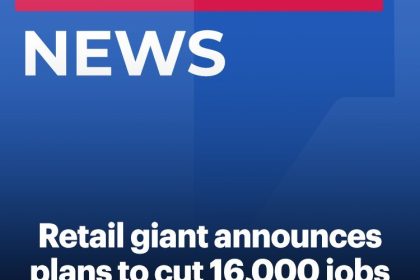Vice President JD Vance has provided the clearest indication yet of his potential presidential ambitions for 2028, while carefully balancing political expectations with emphasis on his current responsibilities and the demanding nature of national campaigns. His comments during a weekend media appearance have sparked immediate speculation about the future of Republican leadership and the evolving dynamics within the party as it looks beyond the current administration.
The vice president’s strategic approach to discussing presidential possibilities reflects sophisticated understanding of political timing and the delicate balance required when serving as second-in-command while harboring higher ambitions. His remarks suggest both serious consideration of a future campaign and recognition that premature political maneuvering could undermine his effectiveness in his current role and relationship with President Trump.
The conversation about Vance’s presidential prospects occurs within a broader context of Republican Party succession planning and the ongoing question of how the party will evolve after Trump’s presidency concludes. These discussions have gained urgency as political observers begin analyzing potential 2028 candidates and the ideological direction the party might take in its next chapter.
Strategic Messaging: Politics and Performance
During his appearance on “My View” with Lara Trump on Saturday night, Vice President Vance demonstrated careful political messaging that acknowledged presidential possibilities while emphasizing his commitment to current duties. His approach reflects understanding that discussing future campaigns too early can create problems with current responsibilities while failing to discuss them can cede political ground to potential competitors.
“If we do a good job in 2025 and 2026, then we can talk about the politics in 2027,” Vance stated, establishing a timeline that connects his presidential prospects to administrative performance while pushing substantive campaign discussions into the future. This framework allows him to maintain focus on governing while keeping presidential options open.
Vance’s emphasis on American frustration with politicians “already running for the next job, seven months into the current one” reveals strategic awareness of public sentiment about political ambition and career advancement. This messaging positions him as focused on service rather than self-promotion while subtly criticizing potential competitors who might begin campaigning earlier.
The vice president’s comment that “I really think the American people are so fed up with folks who are already running for the next job” suggests recognition that voters often prefer leaders who appear focused on current responsibilities rather than future opportunities. This approach allows Vance to discuss presidential possibilities while maintaining credibility as someone prioritizing governance over politics.
His strategic framework also provides flexibility for adjusting presidential plans based on administrative success, personal circumstances, or changes in political landscape that might affect his viability or interest in seeking higher office.
Earning the Nomination: No Guarantees in Politics
Vance demonstrated political realism by acknowledging that a potential presidential nomination would require significant work and couldn’t be assumed based on his current position. “There are a lot of great people. If I do end up running, it’s not going to be given to me—either on the Republican side or on the national side,” he stated, recognizing the competitive nature of presidential politics.
This acknowledgment reflects understanding that vice presidential positions don’t guarantee presidential nominations, despite historical examples of successful transitions from second-in-command to president. Vance’s recognition that he would need to “work for it” suggests appreciation for the demanding nature of presidential campaigns and the importance of building independent political support.
The reference to “great people” on both Republican and national levels indicates Vance’s awareness of potential competition from other prominent Republicans as well as Democratic candidates who might emerge for 2028. This recognition suggests strategic thinking about the broader political field rather than assumptions about clear paths to nomination.
His emphasis on “working hard” connects to broader themes about merit-based advancement and earned success that resonate with conservative political philosophy while appealing to voters who prefer candidates who demonstrate commitment and effort rather than entitlement.
The acknowledgment that nomination wouldn’t be “given” to him also demonstrates political humility that can be appealing to voters while managing expectations about his presidential prospects in ways that provide flexibility for future decisions.
Current Role Priority: Vice Presidential Responsibilities
Vance positioned his vice presidential duties as potentially “the most important job I ever had, outside of being a father to those three beautiful kids,” emphasizing the significance of his current position while connecting it to personal values about family and service. This framing elevates the vice presidency above typical stepping-stone characterizations.
His commitment to “try to do my best job” in the vice presidency reflects understanding that presidential prospects often depend on performance in current roles, particularly for vice presidents who must demonstrate executive capability and leadership potential. This approach connects current duties to future possibilities without appearing to neglect present responsibilities.
The comparison between vice presidential duties and fatherhood provides personal context that humanizes Vance while suggesting that he approaches political responsibilities with the same seriousness and commitment he brings to family life. This connection appeals to voters who value family-oriented leadership.
Vance’s statement that “if I do that, the politics will figure itself out” suggests confidence that strong performance in current role will create natural opportunities for advancement while allowing him to avoid premature political positioning that might complicate his relationship with Trump or other Republican leaders.
The emphasis on current job performance also provides measurable criteria for evaluating his presidential readiness, suggesting that voters and political observers should judge his qualifications based on vice presidential accomplishments rather than campaign promises or political positioning.
Trump Administration Dynamics: Delegation and Trust
Vance provided detailed insights into President Trump’s leadership style and their working relationship, emphasizing Trump’s energy, delegation abilities, and trust in his vice president. These observations offer valuable perspective on administration dynamics while positioning Vance as a trusted lieutenant prepared for expanded responsibilities.
“Sometimes, the president will call you at 12:30 or 2 a.m., and then call you at 6 a.m. about a totally different topic,” Vance revealed, illustrating Trump’s intense work schedule and hands-on approach to governance. This anecdote demonstrates the demanding nature of serving in the Trump administration while suggesting Vance’s ability to match the president’s energy and availability.
The description of Trump as someone who “doesn’t have an off switch” provides insight into presidential leadership style while positioning Vance as someone capable of working effectively with a high-energy, demanding executive. This compatibility suggests readiness for presidential responsibilities that require similar intensity and commitment.
Vance’s appreciation for Trump’s delegation—”JD you go and do this,’ or ‘JD you go and talk to these leaders about this particular issue”—indicates that he’s receiving substantial executive experience and international exposure that could enhance his presidential qualifications. This delegation also suggests Trump’s confidence in Vance’s abilities and judgment.
The emphasis on Trump’s “ability to delegate and trust his people” positions both leaders positively while suggesting that Vance is gaining valuable experience in areas that would be crucial for presidential success, including international relations and complex policy implementation.



